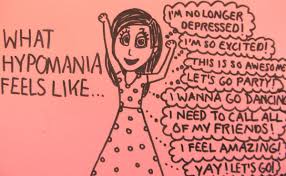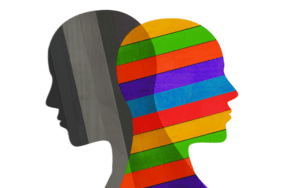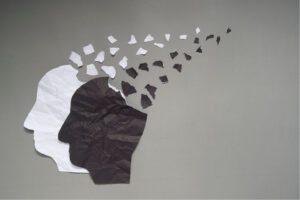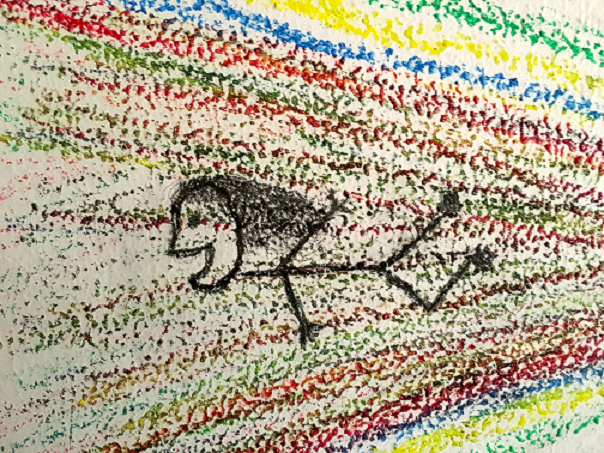Are you feeling extra energetic lately? Are your thoughts racing a mile a minute? If so, you may be experiencing hypomania symptoms. Hypomania is a less severe form of mania, and it can be quite enjoyable for some people. However, it can also lead to dangerous behaviors if left unchecked. In this blog post, we will discuss 14 signs that you are experiencing hypomania symptoms.
Contents
- 1 Defining Hypomania
- 2 Signs You’re Experiencing Hypomania Symptoms
- 2.1 Increased Energy Levels
- 2.2 Racing Thoughts
- 2.3 Decreased Need for Sleep
- 2.4 Irritability
- 2.5 Euphoria
- 2.6 Increased sex drive
- 2.7 Reckless Behavior
- 2.8 Impaired Social or Occupational Functioning
- 2.9 Visual and Auditory Hallucinations
- 2.10 Talking fast
- 2.11 Reckless Decision Making
- 2.12 Difficulty Concentrating
- 2.13 Grandiose Thinking
- 2.14 Experiencing paranoia or delusions
- 3 How Is Hypomania Different From Mania?
- 4 Diagnosing Hypomania
- 5 Treatment Options
- 6 Conclusion
Defining Hypomania

First, let’s define hypomania. Hypomania is a period of abnormally elevated or irritable mood. This can be accompanied by increased activity levels and decreased need for sleep. While hypomania is not as severe as mania, it can still lead to impairment in social or occupational functioning. In some cases, it can also lead to risky behaviors such as spending sprees and reckless driving. If you are experiencing any of these symptoms, it is important to seek professional help.
Typically, hypomania symptoms last for a few days to a couple of weeks. However, in some cases, they can last for months or even years. If you are experiencing any of the following symptoms, it is important to seek professional help.
Signs You’re Experiencing Hypomania Symptoms
Now that we have defined hypomania, let’s discuss the signs that you may be experiencing hypomania symptoms.

Increased Energy Levels
One of the most common signs of hypomania is increased energy levels. If you find yourself with more energy than usual, it may be a sign that you are experiencing hypomania. This increased energy can lead to decreased need for sleep and feeling wired all the time. It can also make an individual feel like they can do anything and that nothing is impossible.
Racing Thoughts
Another sign of hypomania is racing thoughts. If your mind is constantly racing, it may be a sign that you are experiencing hypomania. This can lead to difficulty concentrating and feeling like your thoughts are out of control. You may also find yourself talking faster than usual or feeling like your thoughts are out of control.
Decreased Need for Sleep
As we mentioned before, one of the signs of hypomania is decreased need for sleep. If you find yourself not needing as much sleep as usual, it may be a sign that you are experiencing hypomania. This can lead to difficulty sleeping and feeling tired during the day. It also means that you may be more likely to engage in risky behaviors, such as driving while tired.
Irritability
Another sign of hypomania is irritability. If you find yourself feeling more irritable than usual, it may be a sign that you are experiencing hypomania. This can lead to outbursts of anger and difficulty controlling your emotions. Irritable moods can also have an impact on your social and occupational functioning.
Euphoria
Euphoria is another sign of hypomania. This can manifest itself as feeling excessively happy or elated. It can also lead to feelings of grandiosity and inflated self-esteem. This can also present itself as feeling happy for no reason, feeling excessively optimistic, or feeling like you are on top of the world. These fluctuations in mood can be quite extreme and can lead to problems in your personal and professional life.
Increased sex drive
Another sign of hypomania is increased sex drive. If you find yourself with a higher than usual sex drive, it may be a sign that you are experiencing hypomania. This can lead to risky sexual behaviors, such as having unprotected sex or multiple partners. It can also cause problems in your intimate or romantic relationship and be a risk for your sexual health.
Reckless Behavior
One of the most dangerous signs of hypomania is reckless behavior. If you find yourself engaging in risky behaviors, such as spending sprees, unprotected sex, or driving recklessly, it may be a sign that you are experiencing hypomania. These behaviors can lead to serious consequences, such as financial ruin or jail time. They can also cause problems in your personal and professional life.
Impaired Social or Occupational Functioning
Another sign of hypomania is impaired social or occupational functioning. This can manifest itself as difficulty keeping up with work, skipping classes, or isolating yourself from friends and family. It may also lead to problems in your personal relationships.
Visual and Auditory Hallucinations
In some cases, people who experience hypomania may also experience visual and auditory hallucinations. These can be extremely frightening and can cause problems in your personal and professional life. They are also one of the signs that you should seek professional help.
Talking fast
Another sign of hypomania is talking fast. If you find yourself talking faster than usual, it may be a sign that you are experiencing hypomania. This can lead to difficulty concentrating and feeling like your thoughts are out of control. It can also be a consequence of racing thoughts.
Reckless Decision Making
Another sign of hypomania is reckless decision-making. If you find yourself making decisions without thinking them through, it may be a sign that you are experiencing hypomania. This can often lead to disastrous consequences such as losing money or damaging relationships.
Difficulty Concentrating
Another common sign of hypomania is difficulty concentrating. If you find yourself having trouble focusing on tasks or conversations, it may be a sign that you are experiencing hypomania. This can lead to problems at work or school and feeling like your thoughts are all over the place.
Grandiose Thinking
Another sign of hypomania is grandiose thinking. If you find yourself thinking more highly of yourself than usual or making unrealistic plans, it may be a sign that you are experiencing hypomania. This can often lead to disappointment when things don’t go as planned and difficulty trusting others.
Experiencing paranoia or delusions
If you find yourself feeling paranoid or having delusions, it may be a sign that you are experiencing hypomania. This can often lead to feeling isolated and disconnected from reality. These delusions can be extremely frightening and can cause problems in your personal and professional life.
The above list is not exhaustive but rather meant to serve as a starting point for identifying potential signs of hypomania. If you are concerned that you or someone you know may be experiencing hypomania, please reach out to a mental health professional for assistance.
How Is Hypomania Different From Mania?
While hypomania and mania share many similarities, there are some key ways in which they differ.
- Firstly, hypomania is less severe than mania and does not typically require hospitalization.
- Secondly, people who experience hypomania generally do not experience delusions or hallucinations.
- Finally, people with hypomania are generally able to function relatively well, whereas people with mania often cannot.
If you think you may be experiencing either hypomania or mania, please reach out to a mental health professional for assistance.
Left untreated, both conditions can lead to serious problems in your personal and professional life. Hypomania can also progress to full-blown mania in some cases. If you are concerned that you or someone you know may be experiencing either condition, please reach out to a mental health professional for assistance.
Diagnosing Hypomania
Now that we have an idea about hypomania symptoms, let’s talk about how it is diagnosed.
Hypomania is typically diagnosed by a mental health professional such as a psychiatrist or psychologist.
To make a diagnosis, they will often ask questions about your symptoms and medical history. They may also administer a psychological evaluation or diagnostic test.
Some of the most common tools and techniques used to diagnose hypomania are:
- The Diagnostic and Statistical Manual of Mental Disorders (DSM)
- The hypomania checklist
- The Structured Clinical Interview for DSM Disorders (SCID)
- Minnesota Multiphasic Personality Inventory (MMPI)
If you think you may be experiencing hypomania, please reach out to a mental health professional for assistance. They will be able to help you determine if you are indeed experiencing hypomania and, if so, develop a treatment plan.
Treatment Options

There is no one-size-fits-all approach to treating hypomania, and treatment should be tailored to your individual needs. Medication, therapy, and hospitalization are all possible treatment options. If you are concerned that you or someone you know may be experiencing hypomania, please reach out to a mental health professional for assistance.
Medication
One option is medication. There are a number of different types of medication that can be used to treat hypomania, such as:
- Mood stabilizers: these can help to stabilize your mood and prevent future episodes of hypomania. Some examples include lithium and valproate.
- Antidepressants: these can help to improve your mood and reduce the symptoms of hypomania. Some examples include fluoxetine and sertraline.
- Antipsychotics: these can be used if you are also experiencing psychosis. Some examples include risperidone and olanzapine
Your doctor will work with you to determine which medication is best for you based on your individual needs.
Therapy
Another option is therapy. There are a number of different types of therapy that can be used to treat hypomania, such as:
- Cognitive behavioral therapy: this can help you to identify and change negative thinking patterns
- Interpersonal therapy: this can help you to improve communication and relationships with others
- Family therapy: this can help to improve communication and relationships within your family.
- Psychodynamic therapy: this can help you to understand and change the underlying causes of your condition
Your therapist will work with you to determine which type of therapy is best for you based on your individual needs.
Hospitalization
In some cases, hospitalization may be necessary. This is usually only the case if you are experiencing severe symptoms that are not responding to medication or therapy.
During hospitalization, you will be monitored closely and given a course of treatment that is tailored to your individual needs. Some of the most common interventions include:
- Medication: you will be given medication to help stabilize your mood and reduce the symptoms of hypomania.
- Therapy: you will participate in individual, group, or family therapy to help you understand and manage your condition.
- Education: you will be given information about your condition and how to manage it.
- Aftercare: once you are discharged from the hospital, you will be given a plan for continuing care. This may include medication, therapy, support groups, or other interventions.
If you are concerned that you or someone you know may be experiencing hypomania, please reach out to a mental health professional for assistance.
Self Coping Strategies
There are a number of things you can do to help cope with hypomania, such as:
- Identify your triggers: Try to identify the things that trigger your episodes of hypomania. This may include stress, lack of sleep, or certain types of medication. Once you know your triggers, you can try to avoid them.
- Create a support network: Reach out to family and friends for support. Let them know what you are going through and how they can help. You may also want to consider joining a support group for people with bipolar disorder.
- Stick to a routine: Establish a daily routine and stick to it as much as possible. This may include regular meals, exercise, and bedtimes.
- Avoid alcohol and drugs: substances can worsen the symptoms of hypomania and can also lead to addiction. These should be avoided.
- Monitor your symptoms: Keep track of your symptoms and how they are impacting your life. This can help you to identify early warning signs of an episode.
- Ensure sleep hygiene: Getting enough sleep is important for managing hypomania. Establish a regular sleep schedule and stick to it as much as possible. Avoid caffeine and other stimulants before bedtime.
- Adopt healthy habits: Eating a balanced diet, exercising regularly, and managing stress can help to reduce the symptoms of hypomania. These also help to promote overall mental health.
Treatment for hypomania can vary depending on the severity of symptoms and may include medication, therapy, hospitalization, or self-coping strategies. If you are concerned that you or someone you know may be experiencing hypomania, please reach out to a mental health professional for assistance.
Conclusion
Hypomania can be a very serious condition, but with proper treatment, it is possible to manage your symptoms and live a healthy and productive life. If you are concerned that you or someone you know may be experiencing hypomania or its related symptoms, please reach out to a mental health professional for assistance.
For more information, please contact MantraCare. Bipolar disorder is a mental illness characterized by extreme shifts in mood, energy, and activity levels. If you have any queries regarding Online Bipolar Disorder Counseling experienced therapists at MantraCare can help: Book a trial Bipolar Disorder therapy session


